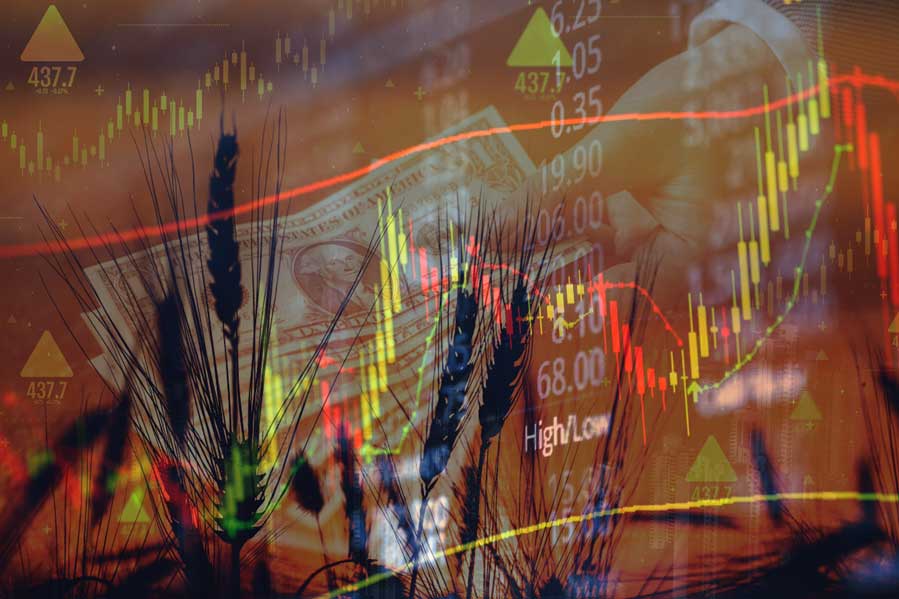Futures index trading and stock trading are two principal components of the financial markets, each offering unique opportunities and risks for investors. While stock trading involves buying and selling shares of individual companies, futures index trading focuses on contracts that speculate on the future price of market indices. Both avenues provide pathways to profitability but differ significantly in their operations, risk profiles, and potential advantages and disadvantages. Understanding these differences is crucial for any investor considering diversifying their portfolio across these financial instruments.

Futures index trading and stock trading are two principal components of the financial markets, each offering unique opportunities and risks for investors. While stock trading involves buying and selling shares of individual companies, futures index trading focuses on contracts that speculate on the future price of market indices. Both avenues provide pathways to profitability but differ significantly in their operations, risk profiles, and potential advantages and disadvantages. Understanding these differences is crucial for any investor considering diversifying their portfolio across these financial instruments.
Futures Index Trading
Futures index trading involves contracts that represent the future value of a stock market index, such as the S&P 500, Dow Jones Industrial Average, or NASDAQ Composite. These contracts obligate the buyer to purchase, and the seller to sell, the underlying index at a predetermined price on a specified future date.
Advantages:
- Leverage: Futures trading allows for significant leverage, meaning traders can control large positions with a relatively small amount of capital. This can amplify returns but also increases risk.
- Hedging: Investors can use futures to hedge against market downturns. If you anticipate a decline in the market, you can short sell a futures contract to potentially profit from or protect your portfolio against falling prices.
- Market Accessibility: Futures markets often offer extended trading hours compared to stock markets, providing more flexibility and the opportunity to react to market-moving events outside of regular trading hours.
- Diversification: Trading index futures allows investors to gain exposure to a broad market segment or the entire market through a single transaction, facilitating diversification.
- Liquidity: Major futures indexes are highly liquid, enabling traders to enter and exit positions easily with minimal slippage.
Disadvantages:
- Complexity: Futures trading can be complex and might be daunting for novice traders. Understanding leverage, margin requirements, and contract specifications requires a steep learning curve.
- Risk of Leverage: While leverage can increase returns, it also amplifies losses. Traders can potentially lose more than their initial investment if the market moves against them.
- Roll-Over Costs: Futures contracts have expiration dates, requiring traders to roll over their positions to maintain exposure. This process can incur additional costs and impact profitability.
- Market Volatility: Futures markets can be highly volatile, with rapid price movements that may result in significant losses.
Stock Trading
Stock trading involves buying and selling shares of individual companies. Investors profit from stock trading by purchasing shares at a low price and selling them at a higher price, or through dividends paid by the company.
Advantages:
- Ownership Stake: Buying shares gives investors a partial ownership stake in a company, including voting rights and a claim on assets and earnings.
- Dividend Income: Many stocks provide income through dividends, offering a return on investment regardless of stock price movements.
- Simplicity: Compared to futures trading, stock trading is generally more straightforward, making it more accessible for beginners.
- Control over Selection: Investors can pick individual stocks based on extensive research, company performance, and growth potential, offering more control over their investment choices.
- Long-Term Growth Potential: Stocks have historically provided significant long-term growth potential, with the opportunity to benefit from the overall growth of the economy and individual sectors.
Disadvantages:
- Capital Requirements: Unlike futures, stock trading requires more capital to control significant positions, as there is no inherent leverage.
- Market Risk: Stock prices can be volatile in the short term and are affected by both market-wide factors and company-specific news.
- Liquidity: While major stocks are highly liquid, smaller stocks may be less so, making it harder to enter or exit positions without affecting the stock price.
- Limited Trading Hours: Stock markets have more restricted trading hours compared to futures markets, limiting the ability to trade based on new information outside those hours.
- Diversification Challenges: Achieving diversification requires purchasing multiple stocks, which can be capital-intensive and time-consuming.
Comparing Futures Index Trading and Stock Trading
When deciding between futures index trading and stock trading, investors should consider their investment goals, risk tolerance, and the level of involvement they wish to have in managing their investments.
Risk vs. Reward: Futures trading can offer higher potential returns due to leverage, but with higher risk, including the possibility of losing more than the initial investment. Stock trading, while potentially offering substantial long-term returns, typically involves less daily volatility and risk (excluding leverage).
Market Access and Flexibility: Futures markets often provide broader access and flexibility, including almost 24-hour trading, which can be particularly appealing to those looking to trade on global economic events outside of standard stock market hours.
Investment Horizon: Futures are generally suited to short- to medium-term investment horizons due to the nature of contracts and rollover costs. Stocks are traditionally viewed as a longer-term investment, given their potential for growth and the compound interest effect of dividends.
Knowledge and Experience: Futures trading requires a good understanding of the markets, including macroeconomic indicators and technical analysis. Stock trading, while also benefiting from a strong market understanding, can be more accessible to beginners due to its more straightforward nature.
Both futures index trading and stock trading have distinct advantages and disadvantages, catering to different types of investors with varying risk appetites, capital availability, and investment strategies. Futures offer a high-risk, high-reward scenario with flexibility and leverage, suited for experienced traders focused on short- to medium-term gains. Stock trading, on the other hand, appeals to those seeking long-term growth, dividend income, and a more straightforward approach to investing. Ultimately, the choice between futures index trading and stock trading should align with an investor’s financial goals, risk tolerance, and the degree of active management they wish to undertake in their investment portfolio. Balancing these factors with a well-researched strategy can lead to successful outcomes in either arena.
Top of FormReady to start trading futures? Call US 1(800)454-9572 – Int’l (310)859-9572 email info@cannontrading.com and speak to one of our experienced, Series-3 licensed futures brokers and start your futures trading journey with E-Futures.com today.
Disclaimer – Trading Futures, Options on Futures, and retail off-exchange foreign currency transactions involves substantial risk of loss and is not suitable for all investors. Past performance is not indicative of future results. You should carefully consider whether trading is suitable for you in light of your circumstances, knowledge, and financial resources. You may lose all or more of your initial investment. Opinions, market data, and recommendations are subject to change at any time.
**This article has been generated with the help of AI Technology. It has been modified from the original draft for accuracy and compliance reasons.
***@cannontrading on all socials.









